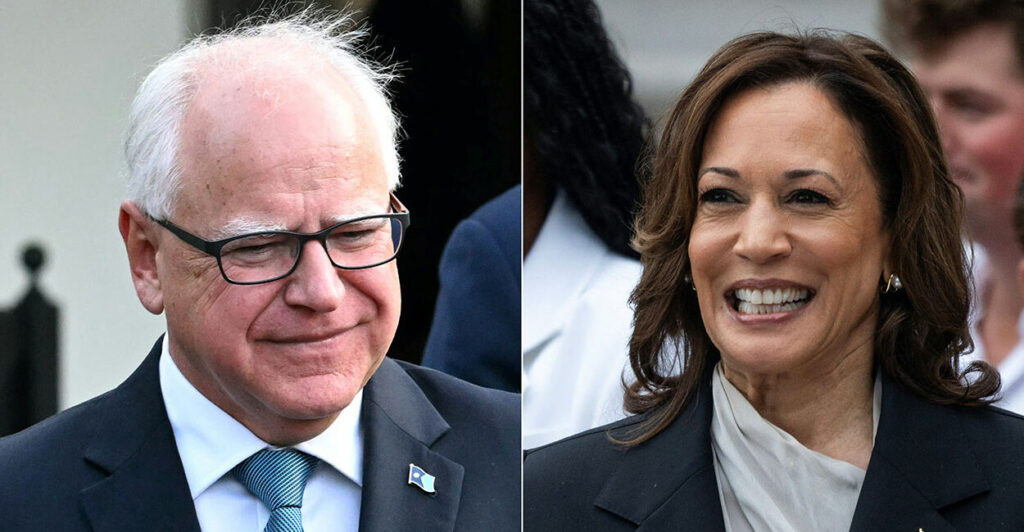US Vice President and Democratic candidate Kamala Harris picked Minnesota Governor Tim Walz as her running mate, looking to strengthen the Democratic ticket in Midwestern states. This comes hours after Harris officially secured the Democratic presidential nomination on Monday, becoming the first woman of Black and Indian heritage to contest the position on a major party ticket.
According to sources, Harris zeroed in on three potential finalists in the recent days including Pennsylvania Gov. Josh Shapiro, Arizona Sen. Mark Kelly and Minnesota Gov. Tim Walz. He is a military veteran and union supporter who helped enact an ambitious Democratic agenda for his state, including sweeping protections for abortion rights and generous aid to families.
Walz was initially a high school social studies teacher, football coach and union member before he got into politics. He served 24 years in the Army National Guard, rising to command sergeant major, one of the highest enlisted ranks in the military.
Born in Nebraska, Walz enlished in the Army National Guard after graduating high school. He took a high school teaching and coaching position. Walz advised Mankato West High School’s first gay-straight alliance club in Mankato, Minn. Politicos have touted Walz as a safe choice for Harris, due to his Midwestern heritage and his military service.
Walz signed an executive order in March 2023, directing state agencies to protect “gender-affirming care,” a euphemism for experimental interventions designed to make males appear female and vice versa. Supporters hailed the order as designating Minnesota a “trans refuge.” Under the order, a parent in another state may not take custody action against a parent in Minnesota who is “transitioning” a child.
In January 2023, Walz signed a broad abortion law that included no limitations on how late during pregnancy a mother may end the life of her unborn baby. The legislation reads: “Every individual has a fundamental right to make autonomous decisions about the individual’s own reproductive health, including the fundamental right to use or refuse reproductive health care.”



